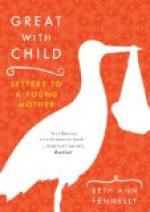Let me not be understood as saying that the strong, and the robust, and the active cannot digest food which the weak, and enervated, and indolent cannot. Undoubtedly they can. But this does not prove that they ought to do it. It does not prove that their strength and vigor were not given them for other purposes than to be expended on the poorer substances for food, when they might have better. Nor is it true, as often pretended, that the hard laborer needs either more food, or that which is of a stronger quality, just in proportion to the severity of his labor. The man or the child who labors moderately, just sufficient for the purposes of health, and labors with his hands in the open air, needs rather more food than the indolent or the sedentary, or those who labor to excess; but not that which is of a stronger quality. It is he who labors to excess—if any difference of quality were required at all—who should eat milder food, as well as less in quantity.
Some physicians there are who tell us that all mankind would live longer, as well as be more healthful, if they ate nothing but bread, and drank nothing but water. It may be so, but I do not believe it. Water, as I shall show hereafter, is indeed the only appropriate drink; but I do not believe that bread, even after the second year, is in all cases and circumstances the best food. Besides that the experiments of Majendie and other physiologists go a little way—though not far, I confess—to prove that animals generally, (and if so, why not man, as well as the rest?) thrive best with some degree of variety in their food, it seems to me more in accordance with the general intentions of the Creator, so far as we can discover what they are.
While, therefore, I deny that either milk or bread is better, in all cases, for human sustenance, than any other articles of food, I must, at the same time, be permitted to regard them as among the best, and as deserving more general attention. Every infant, after leaving the breast, should, as it seems to me, make bread, in some of its forms, a chief article of food.
This article, so justly and emphatically called the staff of life, may be found in almost every country. Common sense seems to have dictated the propriety of its use; though fashion has often led us to overlook or despise it—like air, and fire, and water, and nearly every other common but indispensable blessing.
The best kind of bread is made from wheat, the worst from bark, saw-dust, &c. Wood and bark afford so little nutriment, that it is only in such countries as Norway, Sweden, Lapland. Iceland, Greenland, and Siberia, that the inhabitants can be induced to make use of them. Here they are often useful; either because people cannot get food which is better, or to blend with their fat or oily animal food. For it should never be forgotten, that healthy digestion requires a large proportion of innutritious matter along with the pure nutriment. In order to make bread from wheat, the meal should not be bolted. If it seems to contain particles which are too coarse, it may be well to pass it through a coarse family sieve; but the best bread I have ever eaten, as well as the cleanest and neatest, was not sifted at all.




